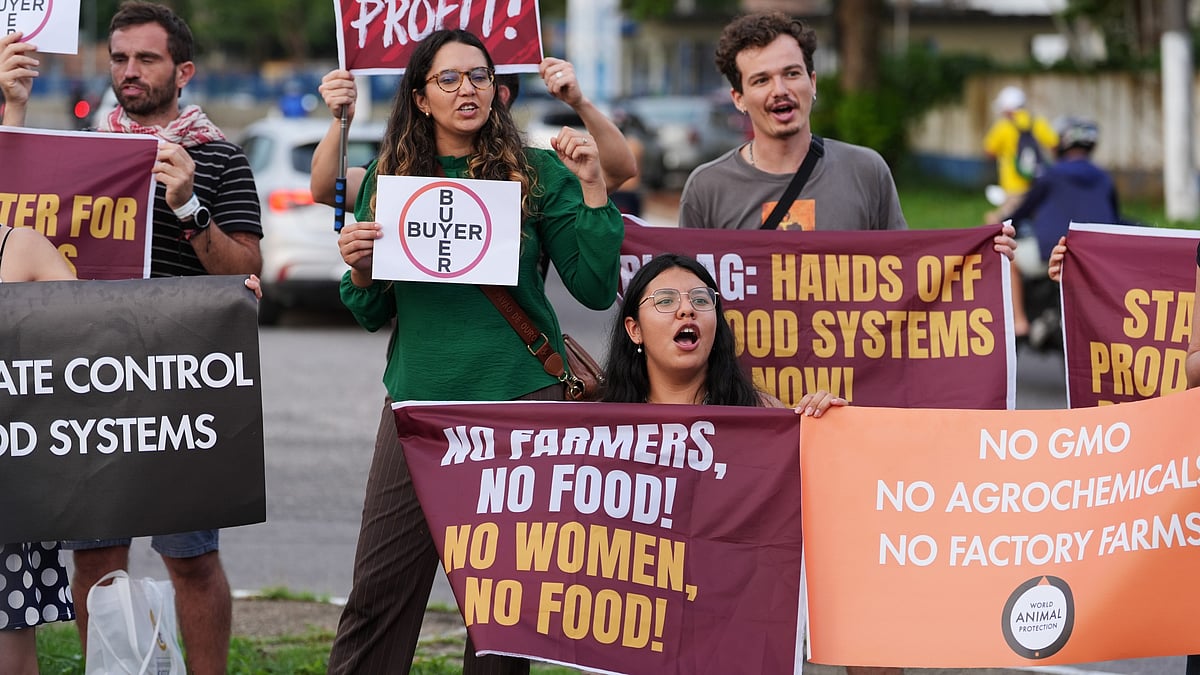World
Brazil: ‘Great People’s March’ sweeps Belém, reviving street pressure on COP talks
'Great People’s March' marks the first large-scale demonstration outside a COP summit since Glasgow, spotlighting Indigenous rights, fossil-fuel phase-out and political tensions

Thousands of people poured into the streets of Brazil's Belém on Saturday, demanding urgent and concrete action to confront the escalating climate crisis amid the ongoing COP30 summit in the city.
The demonstration — billed as the 'Great People’s March' — is the first major protest to take place outside the annual UN climate summit since COP26 in Glasgow four years ago.
The past three host countries, Egypt, the UAE and Azerbaijan, severely restricted public assembly, leaving little room for organised civil society actions.
Held at the halfway point of contentious negotiations, the march brought together an unusually broad coalition: Indigenous communities, environmental activists, anti-capitalist groups, artists, workers’ collectives and international observers. Their demand was unified — climate justice, and fast.
Indigenous groups lead the call for survival
Early in the day, beneath a giant inflatable globe that hovered like a warning above the crowd, a large contingent of Indigenous protesters gathered, chanting as they prepared to lead the procession. Many wore traditional face paint and feathered headdresses, asserting cultural identity alongside political resistance.
Among them was Raquel Wapichana, who travelled nine hours from Roraima. Her sign — “Let’s struggle” — captured the mood. “I am here for my people, my land, our rivers and our ancestors,” she said. “We are constantly threatened by mining, by agribusiness and by land invasions. We must fight for our survival.”
Indigenous-led protests had already bookended the first week of COP, and Saturday’s march extended that momentum. Organisers emphasised that any meaningful climate solution must start with the protection of Indigenous territories, which hold some of the world’s richest biodiversity and carbon stores.
A funeral for fossil fuels — and a warning to political leaders
One of the march’s most visually striking elements was a theatrical “funeral for fossil fuels”. A dozen mourners in black moved through the crowd, accompanied by towering ghoul puppets and three oversized coffins labelled “coal”, “oil” and “gas”. The spectacle drew applause and sombre silence in equal measure.
Published: undefined
Krishna, an actor from Belém dressed in a Victorian-style black lace veil and carrying a parasol, said the performance was meant to push leaders to end dependence on fossil fuels. “Our lives depend on getting rid of fossil fuels,” she said. “Our children and our future depend on our struggle. Through my art, I am here to fight.”
Elsewhere in the crowd, anti-capitalist blocs waved banners accusing governments of greenwashing. One read: “The environmental collapse is capitalist: Lula, the energy transition with Amazon oil is a farce.” The message referenced the controversy around Brazil’s plans to expand offshore exploration even as it positions itself as a leader in climate diplomacy.
Among those marching was Maria Melia of the Quilombola Movement of Maranhão. She said her community is resisting a proposed “hydrovia” water-transport project that she believes would cut through and damage their territory. “We fight for the Amazon because our lives are tied to it,” she said.
Support for Palestine was also visible throughout the march, with flags, keffiyehs and chants interwoven with the climate messaging. Classic Brazilian music played from moving sound systems, including Alceu Valença’s popular song Anunçiação, giving the march the feel of a cultural as well as political gathering.
Negotiations remain stalled as protests build pressure
Inside the summit venue, negotiators remained deadlocked on what participants call the “big four”: climate finance, trade, transparency and how to address the clear inadequacy of countries’ latest national climate plans. These disagreements pushed key matters into a separate set of “presidency consultations” after countries struggled, even on the opening Sunday, to agree on a basic agenda.
Brazil, as host, has already indicated that it does not intend to issue a traditional “cover decision” at the conclusion of the talks — the political agreement normally adopted to summarise outcomes. Instead, officials say the focus this year will be on implementation, though it remains unclear what shape that will take or how progress will be measured.
For now, protesters hope the scale and energy of Saturday’s march will raise the pressure on delegates. The demonstration was expected to continue for several hours, echoing through Belém’s streets long after negotiators returned to the conference halls.
Published: undefined
Follow us on: Facebook, Twitter, Google News, Instagram
Join our official telegram channel (@nationalherald) and stay updated with the latest headlines
Published: undefined